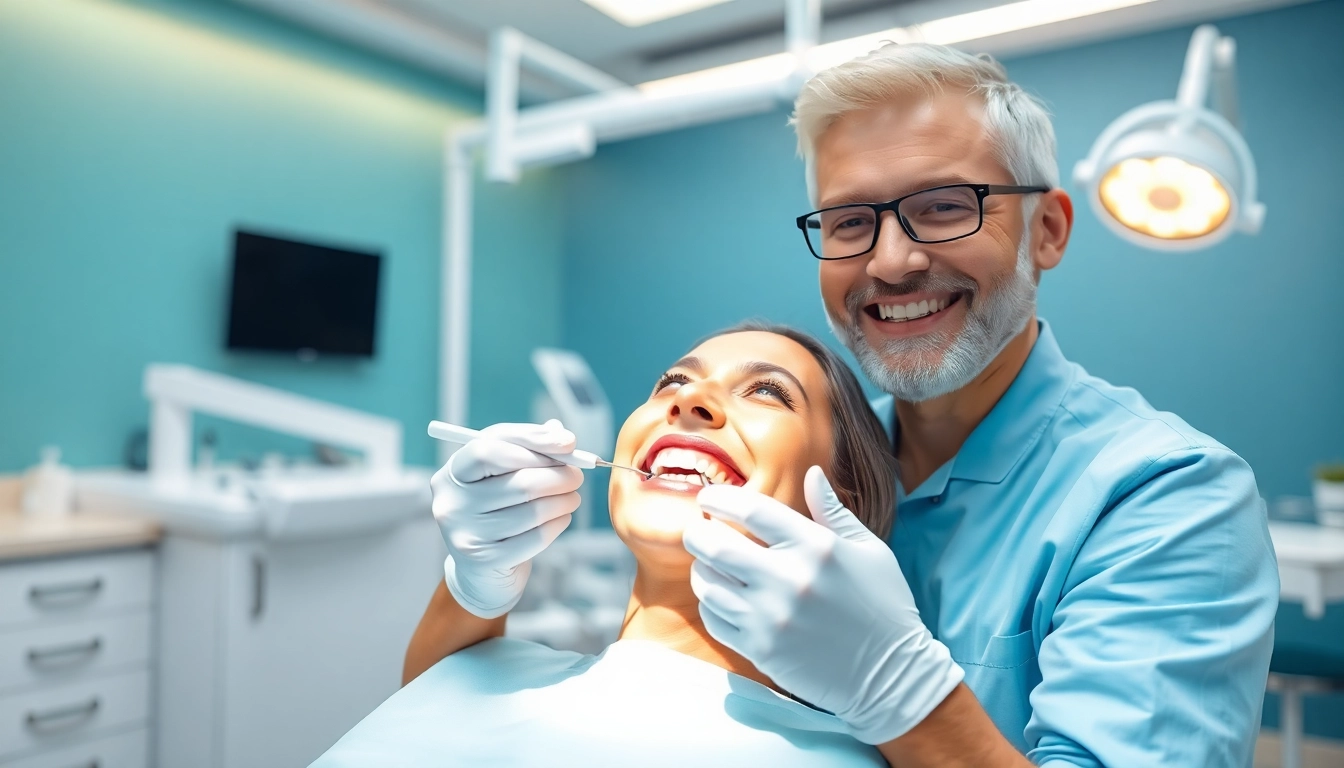Understanding Dental Checkups
Dental checkups are an integral part of maintaining oral health. These regular visits to the dentist ensure that any issues can be identified and addressed early on, reducing the risk of serious complications down the line. Not only do these checkups help in preventing dental diseases, but they also play an essential role in supporting overall health. For more information on the importance of checkups, let’s delve deeper into what they encompass, their benefits, and what to expect during a visit.
What Are Dental Checkups?
Dental checkups are routine appointments where your dentist assesses the health of your teeth, gums, and overall oral cavity. Typically performed every six months, these checkups revolve around preventive care. This includes examinations, cleanings, and diagnostic procedures to detect potential problems before they progress. The focus is on ensuring your oral care is maintained at the highest standards, promoting healthier habits and practices.
Why Regular Checkups Matter
Regular checkups are crucial for several reasons:
- Early Detection: Identifying dental issues early on can prevent complicated treatments later. Conditions like cavities or gum disease can be detected in their initial stages.
- Preventive Care: Professional cleaning during checkups removes tartar and plaque that regular brushing cannot, preventing decay and gum disease.
- Education: Dentists provide valuable advice regarding oral hygiene practices, helping individuals make informed choices.
Common Procedures During Checkups
During a typical dental checkup, several key procedures usually take place:
- Examination: This includes a visual inspection of your teeth and gums and may involve X-rays to evaluate underlying issues.
- Cleaning: A professional cleaning helps remove tartar and plaque buildup, polishing your teeth for a brighter smile.
- Fluoride Treatment: Often applied after cleaning to strengthen tooth enamel.
The Importance of Regular Checkups
How Checkups Prevent Dental Issues
The emphasis of regular checkups on prevention cannot be overstated. By consistently monitoring oral health, dentists can help avert common dental issues:
- Cavities: Routine examinations help identify cavities early, allowing for simple fillings instead of complex procedures.
- Gum Disease: Dental professionals can detect early signs of gum disease and provide necessary treatments to prevent progression.
- Oral Cancer Detection: Dentists check for signs of oral cancer as part of routine examinations, improving early detection rates.
Impact on Overall Health
Oral health is more than just a dental concern; it significantly impacts overall well-being. Studies show associations between poor oral health and several systemic conditions, such as:
- Cardiovascular Disease: Bacteria in the mouth can enter the bloodstream, potentially leading to heart disease.
- Diabetes: Gum disease has been linked to increased blood sugar levels, making diabetes management more challenging.
- Respiratory Infections: Bacteria from gum infections may be inhaled into the lungs, exacerbating respiratory issues.
Benefits of Early Detection
Detecting dental issues early results in a multitude of benefits, including:
- Cost Savings: Treating small problems is typically less expensive than treating extensive damage.
- Less Invasive Treatment: Early intervention often requires simpler procedures, leading to less discomfort.
- Enhanced Confidence: Maintaining a healthy smile contributes to self-esteem and confidence in personal and professional interactions.
Frequency of Dental Checkups
Recommended Checkup Schedule
The general recommendation for dental checkups is every six months. However, factors such as personal health, age, and past dental issues may necessitate a different schedule. The American Dental Association (ADA) suggests that individuals consult their dentist to determine a personalized timetable based on individual needs.
Factors Affecting Frequency
Several factors can influence how often an individual should see the dentist:
For Children vs. Adults
Children typically require dental checkups more frequently than adults. The ADA recommends that a child’s first dental visit occur by their first birthday and then every six months thereafter. Early dental visits help set the stage for good oral health as they grow, addressing issues like thumb-sucking or early signs of cavities.
What to Expect During a Checkup
Initial Assessment and Diagnostic Procedures
Upon arrival, patients can expect a brief assessment by the dental hygienist or dentist. This includes:
- Medical History Review: Informing the dental team of any changes in medications or medical conditions since the last visit.
- X-Rays: If necessary, X-rays may be taken to help visualize the teeth and bone structure.
Cleaning and Treatment Procedures
Once the assessment is complete, the cleaning process begins. This typically includes:
- Scaling: Removal of tartar and plaque from the teeth.
- Polishing: A fluoride-rich paste is used to polish teeth, providing a bright and smooth finish.
- Fluoride Treatment: If recommended by your dentist, a fluoride treatment to further strengthen teeth and prevent cavities.
Aftercare and Follow-Up
After the checkup, your dentist will discuss findings and preventive advice. If any issues are discovered, treatment options will be outlined. Follow-up appointments may be necessary for additional treatment, and ongoing education on oral hygiene practices will be provided.
Choosing the Right Dentist for Checkups
What to Look for in a Dental Practice
When searching for a dental practice, consider the following:
- Credentials: Ensure the dentist is qualified and has the necessary licenses and certifications.
- Services Offered: Look for a practice that offers comprehensive services to meet your needs.
- Insurance Compatibility: Confirm that the practice accepts your insurance plan, if applicable.
Questions to Ask During Your Visit
During your first visit, it’s wise to ask questions such as:
- What is the recommended frequency of visits based on my oral health?
- What preventative measures can I take to maintain better oral health?
- What treatments do you suggest based on my current dental condition?
Reviews and Recommendations
Before making a final decision, it’s beneficial to research online reviews and possibly seek recommendations from friends or family. This can provide insight into patient experiences and help you feel more confident in your choice of dentist.



